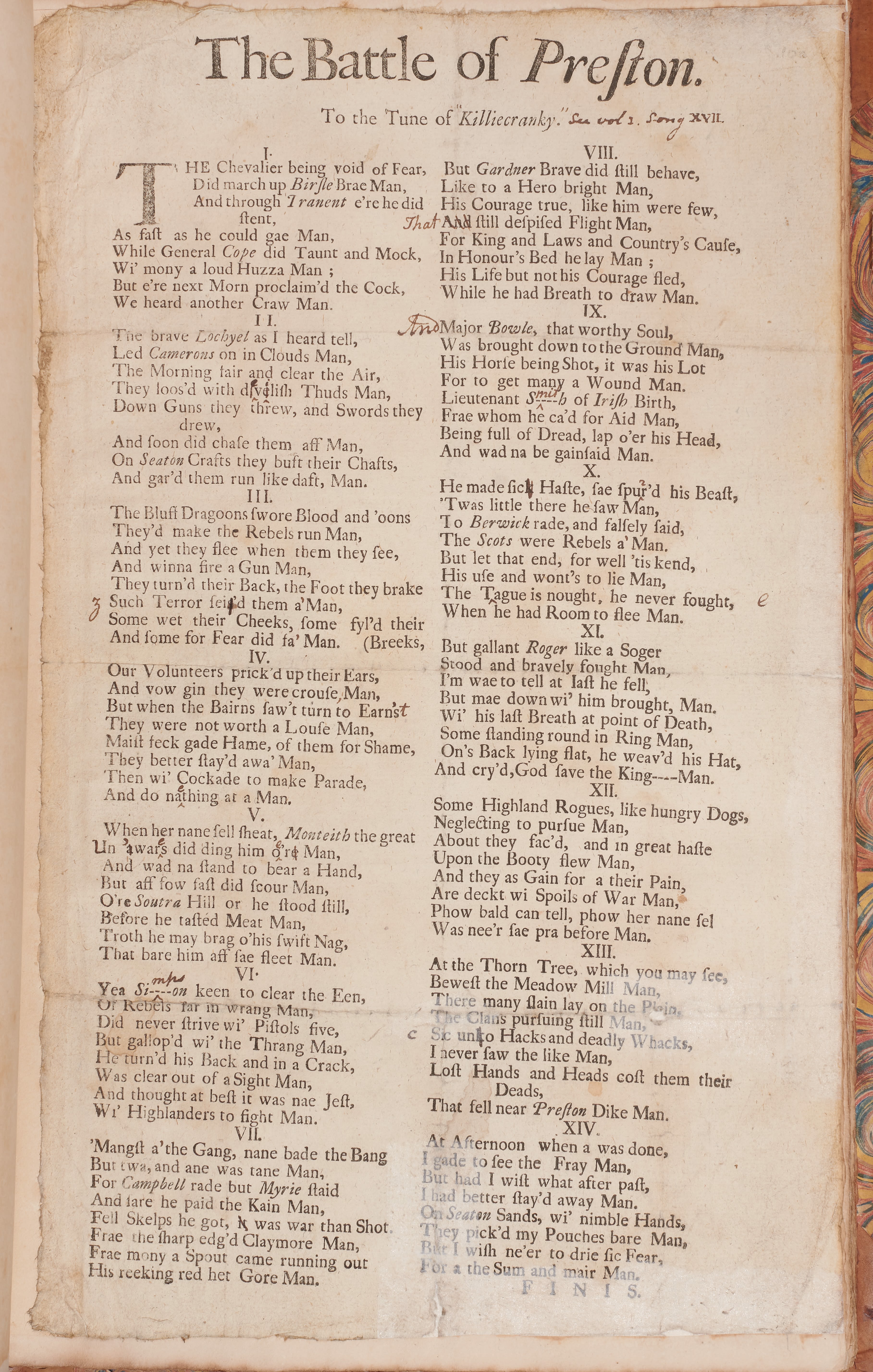7. Politics

The eighteenth and nineteenth centuries were turbulent times for the British Isles; 1707 marked the political union of Scotland and England; 1715 and 1745 saw Jacobite uprisings; the French Revolution and the American Revolution of the late eighteenth century were forces of destabilisation and opportunity, challenging traditional ideologies and forms of power. Britain was at war with France for much of the time when Scott was collecting chapbooks and curiosities, and the period also gave rise to growing social unrest at home, leading to key changes including the Reform Act of 1832 and the abolition of the slave trade. It is hardly surprising that these momentous events are captured in the popular pamphlets of the day.
Scott, of course, wrote about the Jacobite Risings in several of his novels and his interest in this topic is further reflected in his collection of pamphlets relating to this bloody and emotive chapter of Scottish history.
He personally inscribes his collection of Jacobite material: ‘Curious broadsides and manuscripts referring to the affairs of the 1715 and 1745-6 collected by Walter Scott’. This material includes a selection of manuscript poems and ballads relating to the Jacobite uprisings, inscribed in various hands, two engravings of Charles Edward Stuart, two contemporary cartoons, and a collection of printed tracts and broadsides.
There is a real poignancy attached to much of this material which contains, for example, the last words by participants in the uprising as they face execution.



The chapbook collection is also particularly rich in material relating to the Napoleonic Wars. Countless items celebrate British naval and military successes, praise Nelson and Wellington, and mock Napoleon and his Grande Armée. These pamphlets also reflect how years of war impacted upon ordinary people’s lives. For example, ‘The Complaining Lady’s Garland’ contains a stirring song about how women should inspire their menfolk to fight abroad that is typical of the period, yet other items such as ‘The Press’d Man’s Lamentation’ underline the harsh realities of war and the social consequences for those left at home.

This was something close to Scott’s heart and his own poem ‘The Field of Waterloo’ (1815) was written to raise money for the wives and orphans of those who had been killed in the battle. Other ballads, such as ‘The Female Tar’, remind us that women were involved in the political events of the day in more direct ways too.


Slavery and abolition are perhaps referenced less in the collection than we might expect but several of the pamphlets demonstrate the growing voice of the abolition movement in their depiction of slaves and the slave trade calling upon Britain to ‘Blush! Wash out the guilty stain’ of ‘Hell’s infernal trade’.

It is not surprising that during this period, turmoil overseas was matched by political agitation within Britain and the collection contains fascinating items relating to early nineteenth-century domestic politics.
Scott collected not only pamphlets and chapbooks on these topics but newspaper cuttings and miscellanea too. These are now found in scrapbooks in his library, reflecting an active interest in these events.
This political material includes a copy of a rare Burns item ‘The Election: a new song' (1795), written in support of the Whig candidate Patrick Heron in the election for the Stewartry of Kirkcudbright, thus demonstrating the ways in which political debates was playing out at local levels across Scotland.

